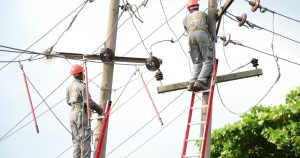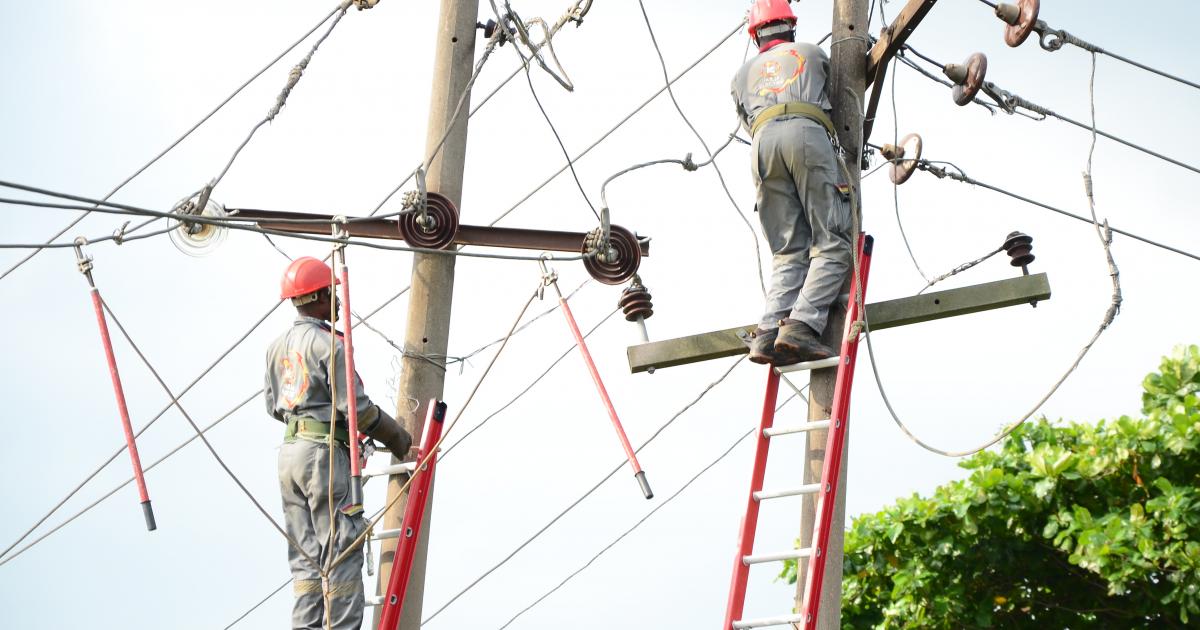The president of Nigerian Association of Chambers of Commerce, Industry, Mines, and Agriculture (NACCIMA), John Udeagbala has called on the Federal Government to renew focus on implementing policies that ensure that the country is energy sufficient.
He stated this at the media briefing on the ‘State of the Nation’ organised by the Chamber.
Udeagbala said, the power sector is of keen interest to the private sector, as it is continually plagued by grid collapse resulting in the instability of power generation, distribution and supply.
He also said the alternative source of energy obtained from the oil and gas sector represents a significant portion of production costs for the private sector, saying this is why NACCIMA is keen to see the progress of the Presidential Power Initiative formed between Nigeria and Germany and increase operational capacity of the national grid.

He however said: “as the private sector awaits the progress of Presidential Power Initiative, immediate intervention is required in the oil and gas sector for which we depend on for our production and transportation needs. Automotive Gas Oil (AGO), also known as diesel, and Jet A1 fuel have become prohibitively expensive forcing a lot of enterprises to shut down or scale down their operations.”
He noted the situation puts to question the readiness of Nigeria to compete in the global economy especially under trade agreements like the AfCFTA, saying, if urgent action is not taken, the resulting non-competitive nature of the Nigerian private sector will cement Nigeria as a ‘consumption-only’ economy, a dumping group for all manner of foreign goods and services.
NACCIMA president called for urgent action in terms of fixing the domestic refineries, or the implementation of the Petroleum Industry Act which is currently hobbled by the petroleum subsidy regime.
“If we estimate that Nigeria has spent an average of N2 trillion a year, for the past 16 years on petroleum subsidy, it is time to ask ourselves, how many refineries could we have built in that time?
“As we acknowledge the economic impact of a sudden removal of petroleum subsidy, we advocate a gradual removal with attendant policy initiatives to cushion the effect on the economy. As it stands, N4 trillion has been allocated in the national budget for petroleum subsidy, an allocation that exceeds that for capital expenditure. Yet, this allocation will not be enough to cover subsidy costs,” he explained.
He also urged the government to renew focus on implementing policies that ensure that our country is energy sufficient, becomes a net exporter of petroleum products and eventually, electricity, adding that, “we can start by taking a look at other developing countries in this space, such as Trinidad and Tobago, who have never had cause to carry out ‘turnaround maintenance’ on their only refinery or revisiting crude oil to petroleum product swap arrangements. The point to be made here is that the issue of subsidy should not be ignored any longer.”
Udeagbala also called on all arms of government to take urgent steps in addressing the current trend o increasing public debt and stagnating economic growth.


